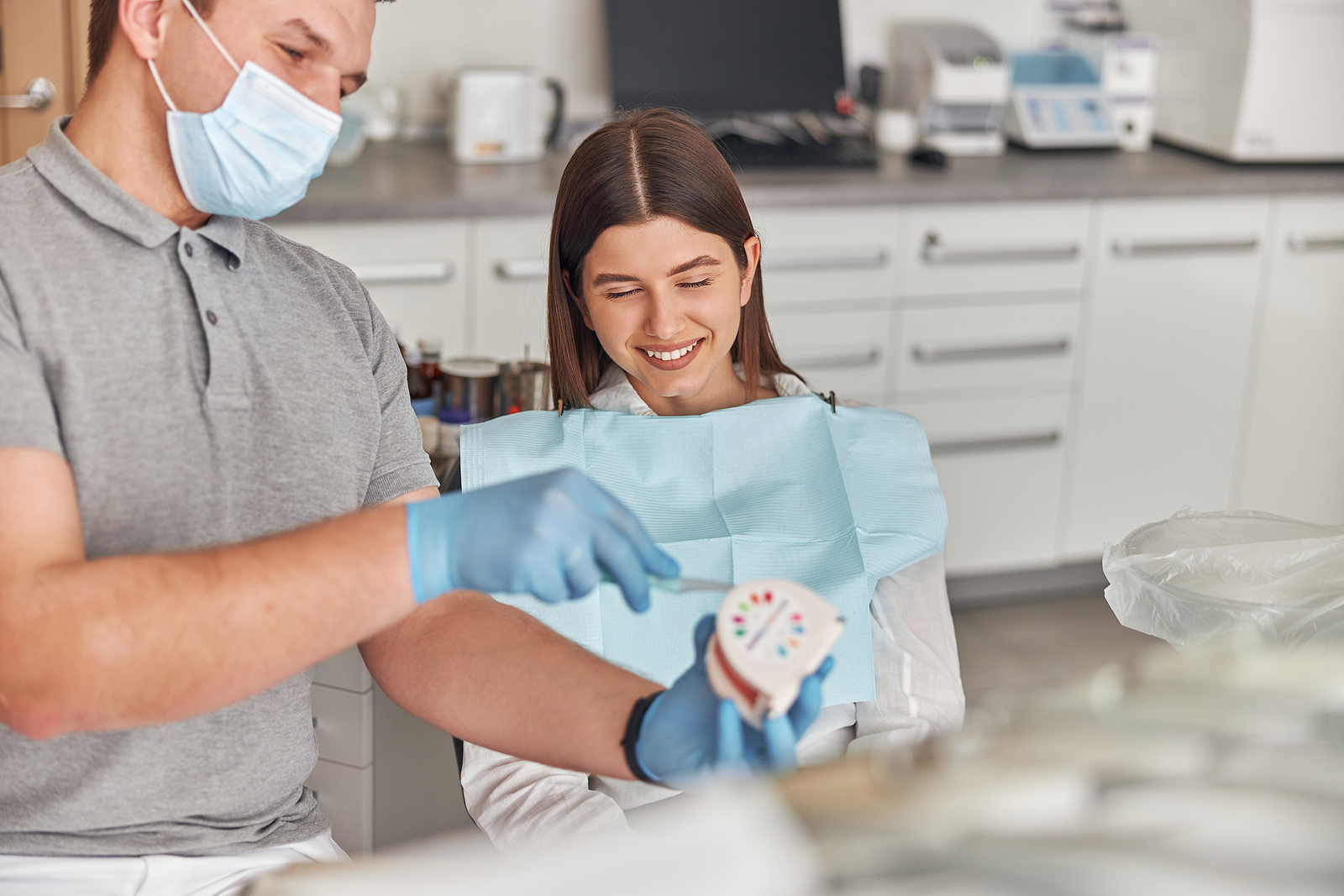A root canal refers to a dental procedure to remove the infected pulp or soft center of your teeth caused due to injury, microbial infection, or inflammation. The pulp is composed of blood vessels, connective tissue, and nerves that together help the teeth stay strong.
When Do You Need Root Canal Therapy?
A root canal therapy is a treatment option to remove the pulp in case of any damage. The pulp may get infected because of deep decay as a result of an untreated cavity, several dental procedures performed on the same tooth, chipped or cracked teeth, or an injury to the teeth. Removing the infected or injured pulp preserves the structure of your teeth and prevents its failure.
Some of the most common symptoms of pulp damage are severe pain in your teeth, swelling, and inflammation in the gums. Our dentist will carry out an X-ray to confirm a damaged pulp.
What Does the Procedure Include?
You will be given a numbing medication on your gum followed by a local anesthetic. It is given so that you do not feel any pain during the procedure.
Our dentist will create a small opening on the top of your teeth. After the infected pulp is exposed, they will remove it using dental tools known as files. The cleaning of all the pathways or canals is also performed.
The exposed area will then be coated using a topical antibiotic to make sure that the infection doesn’t exist and to prevent reinfection. After this, our dentist will fill and seal your teeth using a sealer paste. You will also be prescribed some oral antibiotics.
The last step involves filling the small opening created on the top of the teeth using a soft, tooth-colored filling.
What Happens After the Procedure?
After the procedure, you may feel some soreness in your tooth and gums. These symptoms can be treated using over-the-counter painkillers. Our dentist will advise you to resume your routine the next day after the procedure. You must avoid chewing from the area of the treatment until our dentist fills it permanently.
It is also advised to visit our dental clinic a few days after your procedure. Our dentist will again take your X-ray to ensure that the infection is gone. The temporary filling so made will be then replaced by a permanent one. They may also place a permanent crown on your teeth. Crowns are artificial teeth made using porcelain, gold, and other materials. Follow all the instructions given by our dentist as a part of aftercare of the treatment.
Please reach out to our dental practice in Pasadena, TX, to have a consultation with our dentist, Dr. Sprott. Please call us at (281) 991-6530 or schedule an online consultation, and we’ll guide you further.














































